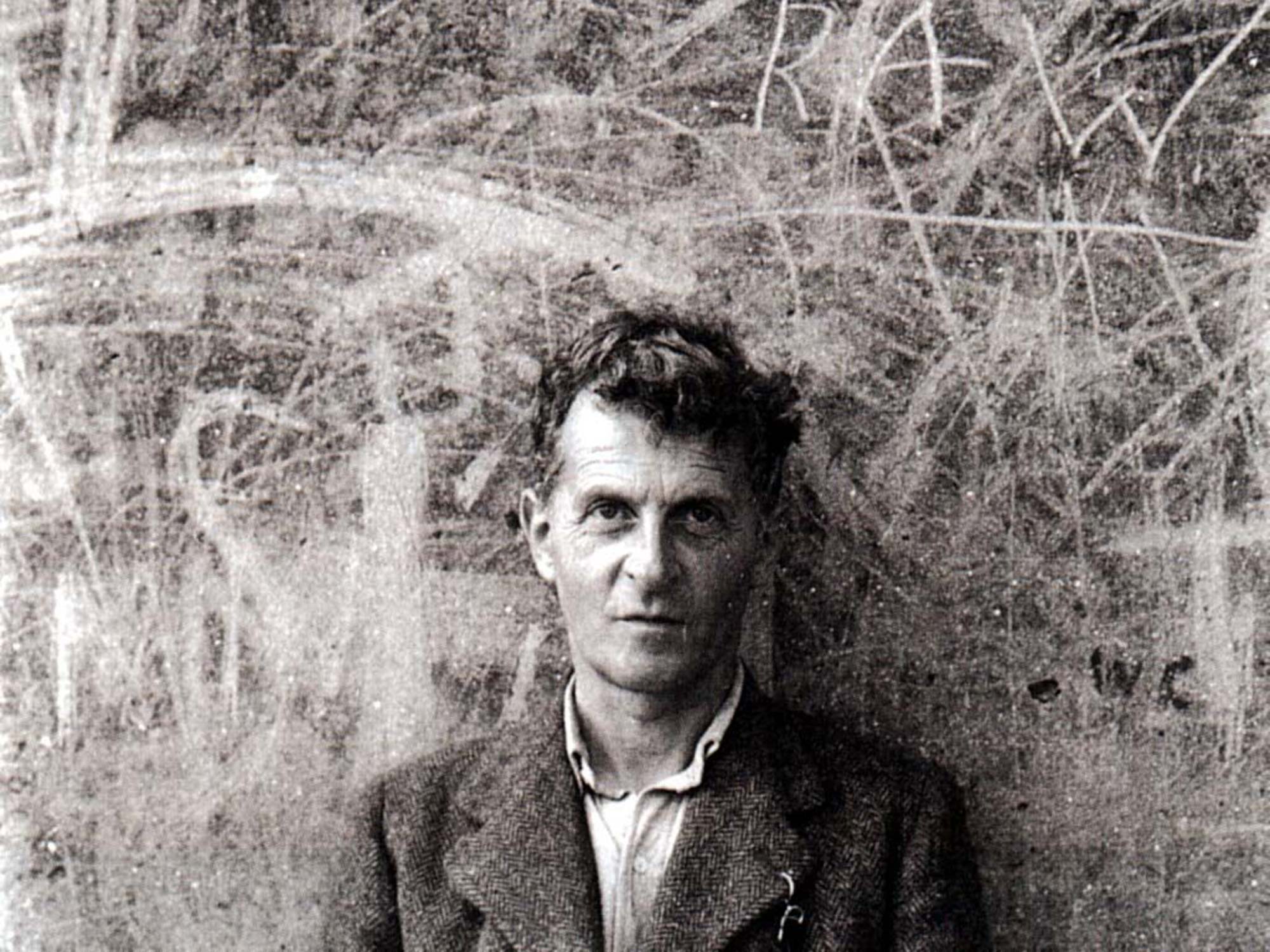

|
Speak today to three people who know you best. Ask them, if I were to expand into my highest calling, who would I be? — Josh Mitteldorf |
1 March 2015
|
|
“Today you are You, that is truer than true. There is no one alive who is Youer than You.” — Dr Seuss, born this day in 1904 “Unless someone like you cares a whole awful lot, nothing is going to get better. It’s not.” |
2 March 2015
|
|
like, wow Quantum mechanics says that the part of reality that we do not perceive is radically different than the part of the world that we do perceive. The difference is so profound that we still don’t fully understand how to talk about quantum reality. There doesn’t seem to be any direct analogy between quantum reality and the reality we perceive with our senses. |
3 March 2015
|
|
Renaissance O happy soul, forget thy self! — Thomas Sturge Moore, born this day in 1870 |
4 March 2015
|
|
Villa-Lobos My father had a special fondness for Heitor Villa-Lobos and for the cello. Villa-Lobos had a special fondness for the cello but not, to my knowledge, for my father. Both of them were born on the 5th of March, but 34 years apart. Listen to the Villa-Lobos fantasy for cello and orchestra, |
5 March 2015
|
|
The blessed work of helping the world forward, happily does not wait to be done by perfect men. — George Eliot |
6 March 2015
|
|
Wittgenstein By the time he decided to teach, Wittgenstein was well on his way to being considered the greatest philosopher alive. Born into fabulous wealth and privilege, he gave all his assets to siblings and went to earn an honest living teaching elementary school in a rural village. There he inspired students and he beat them. Wittgenstein was “interested in everything,” and he engaged his students in a sort of “project-based learning” that wouldn’t be out of place in the best elementary classrooms today. His whole life was one great struggle…to form a self. In working with poor children, he wanted to transform himself, and them. Their parents had no interest in his unforgiving honesty and/or his ambitions for their children. — Here is an Article in Paris Review about Wittgenstein’s years as a schoolteacher. “The real discovery is the one which enables me to stop doing philosophy when I want to—the one that gives philosophy peace, so that it is no longer tormented by questions.” |
7 March 2015
|
|
A tautology is only a tautology, but a paradox is both. — Josh Mitteldorf …and a koan is |
8 March 2015
|
|
No wonder we hate him International security comprises much more than issues relating to military and political stability. It involves the stability of the global economy, overcoming poverty, economic security and developing a dialogue between civilisations. This universal, indivisible character of security is expressed as the basic principle that “security for one is security for all”. …We would like to interact with responsible and independent partners with whom we could work together in constructing a fair and democratic world order that would ensure security and prosperity not only for a select few, but for all. In this speech of 8 years ago, Putin dared to name America’s bloody, imperial foreign policy, and dared us to observe at home the values of freedom and democracy for which we claimed to be fighting abroad. He has been persona non grata in Washington ever since. |
9 March 2015
|
|
Does Quantum Mechanics really matter? Much of 20th Century philosophy is rooted in 19th Century physics. All that message that life is ‘absurd’ and ‘meaningless’ that were prominent in the mid 20th Century come from a belated response to the world-view of Newtonian mechanics. What world-view comes out of 20th Century physics? Quantum mechanics is so strange that it’s hard to say. To make matters more interesting, QM is really just a prescription for calculating answers, and physicists differ widely on the underlying reality that it implies, or even whether there is an underlying reality. In a world where the future is mechanically determined by the past, the idea of free will is meaningless. Does QM open a window for understanding how our experience of freedom can be reconciled with physics? Or does it just add an element of pure randomness to the determinism? At Cracking the Nutshell, a young physicist named Dolors presents deep and provocative thoughts. |
10 March 2015
|
|
Dream on Wouldn’t it be grand if there were space aliens with technological capabilities millions of years ahead of us earthlings, watching over humanity, mostly benevolently curious, but occasionally intervening to make sure we didn’t blow ourselves up? There are many military officers who claim this is reality. Watch Watch “To date, [Robert] Hastings has interviewed more than 150 military veterans who were involved in various UFO-related incidents at U.S. missile sites, weapons storage facilities, and nuclear bomb test ranges. The events described by these individuals leave little doubt that the U.S. nuclear weapons program is an ongoing source of interest to someone possessing vastly superior technology.” — Read more What to believe? I’m trying to keep an open mind and reserve judgment. |
11 March 2015
|
|
Why is the sun hot? The core of the sun is millions of degrees, heated by nuclear reactions. ‘Magneto hydrodynamics’ is the general answer. There is a moving magnetic field from a rotating sun that churns up electric currents in the atmosphere, and the electric energy is converted ultimately to heat. But details remain mysterious, despite decades of study. Dumbed-down version from NASA. |
12 March 2015
|
|
‘I have no use for people who have learned the limits of the possible.’ — Terry Pratchett The truth may be out there, but the lies are inside your head. |
13 March 2015
|
|
In honor of Pi Day Today is Pi Day, 3/14. There are many pieces of music based on the random digits of pi. Here’s the one I find most satisfying, quite tonal, with interesting harmonies. The digits of pi pass every test for randomness. Of course, they are not really random—they are the digits of pi—but there is no other pattern in them. I’ve ceased to be surprised when I find people who are interested in both mathematics and music, and seek a connection. |
14 March 2015
|
|
The human imagination has far wider domain than any of us are wont to explore. But we are finite beings, and even our imagination has limits. That is what science is for. — Josh Mitteldorf |
15 March 2015
|
|
How did this lady make it past the Republocrat gatekeepers? ‘The idea that things have to get a lot worse to have some sort of awakening and bring about an alternative to this corrupt and defunct corporate political system is inaccurate.’ — Kshama Sawant, Seattle City Councilwoman and local chair of the Socialist Alternative Party Read what Sawant has accomplished, and where she is headed. |
16 March 2015
|
|
Capitalism without capital ‘Human beings, to prosper, must be able under all circumstances to give themselves out for what they are. A man must be something, not appear something; he must be able to stride through life with head erect—to speak the truth without incurring the risk of hardship or injury. Sincerity must not remain the privilege of heroes. The economic order must be so framed that a man may combine sincerity with the highest degree of economic success. The dependence inseparable from economic life should affect things only, not men.’ — fr The Natural Economic Order, by Silvio Gesell, born this day in 1862. Gesell was a theorist for a humanistic capitalism. What makes his system uniquely interesting is that he opposed rents and interests of all sorts. Capitalism without capital. He believed that the Earth should belong to all people, regardless of race, |
17 March 2015
|
|
Construction in China I spent the first half of 1974 in Taiwan, at a time when most Americans were not yet allowed in China. Though Taiwan was technologically far ahead of China, it had a long way to go. Downtown Taibei still had animals in the streets, muddy dirt roads, and open sewers. Everywhere was new construction, and it was done with human muscle power. Bamboo scaffolding and men carrying baskets of bricks hanging from poles across their shoulders. Forty years later, China boasts a skyscraper assembled from from factory-made pieces, a 57-storey building erected in 19 days in Changsha, capital of Hunan province. Though Changsha may not be on your radar, it is a typical Chinese megalopolis with 2.2 million people. China has 160 cities with population over 1 million. (The US has 9.) |
18 March 2015
|
|
One data point Sometimes a single experimental result is so strange and unexpected that you can see in it the demise of an old scientific order. And even if you can’t see right away the birth of the new order, it’s a fruitful place to ponder, let your imagination run, and think about what is going to have to change to embrace this new finding. Einstein reportedly came up with Special Relativity based on the perplexing result of the Michaelsson-Morely Experiment. That seemed to show that if you add a velocity to the speed of light, the result is that the speed of light is unchanged; and if you subtract a velocity from the speed of light, the light doesn’t go any slower. Here’s a paradox I learned of just last week. A human-ish mummy discovered in the desert of Chile has the proportions of an adult, but is only 6 inches tall and has a large, funny-shaped head. Carbon dating says it is less than 100 years old. Lab analysis shows that its DNA has 91% in common with humans. What is it? If it were human, the DNA would be 99.99+ % human. If it were any kind of mammal, you would still expect the overlap to be 97+% . On the other hand, if this were some alien that arrived in a space ship, you would expect it not to look anything like a human, not to have DNA at all. |
19 March 2015
|
|
Let’s have crab for dinner …but be careful where you discard the shell. — watch Is this a Halloween party? Seems like everyone here is wearing some kind of mask. |
20 March 2015
|
|
‘I view the spreading of pessimism as treason against the universe.’ — from a speech yesterday by David Swanson, who has taken it upon himself to remind us, day after day, in ways that get past our distraction and our fatigue, that war is horrific, insupportable, and endable. |
21 March 2015
|
|
What a time to be alive! For almost all of human history, people died in the same world in which they were born. Sometimes there was a pivotal event in a lifetime, but never more than one. And of course almost everyone confronts changes in personal circumstances during a lifetime. But uniquely in our era, the world is changing rapidly, in many interacting ways, at an accelerating pace. What is more, we know about it because there is cheap, widely-available global communication, for the first time in history, just in the last 20 years. A lot of the change is driven by technology: electronics, energy, AI and biotech. But much more is driven by global integration, combinations of people who, just a few short years ago would never have had the opportunity to combine. Many of us, perhaps most of us resist change. We’re wired for learning patterns and sticking to them. But we can acquire a taste for change. It is bracing. It is thrilling. It fills us with wonder, if only we can let go of the fear that comes from un-predictability. — JJM |
22 March 2015
|
|
“What is faith? Is faith necessarily a matter of belief in God, or in religious doctrines? Is faith by necessity in contrast to, or divorced from, reason and rational thinking? Even to begin to understand the problem of faith one must differentiate between rational and irrational faith. By irrational faith I understand the belief (in a person or an idea) which is based on one’s submission to irrational authority. In contrast, rational faith is a conviction which is rooted in one’s own experience of thought or feeling. Rational faith is not primarily belief in something, but the quality of certainty and firmness which our convictions have. Faith is a character trait pervading the whole personality, rather than a specific belief. Rational faith is rooted in productive intellectual and emotional activity. In rational thinking (in which faith is supposed to have no place) rational faith is an important component… The history of science is replete with examples of faith in reason, and visions of truth.” — Erich Fromm, born this day in 1900 “Faith is what someone knows to be true, whether he believes it or not.” —Flannery O’Connor |
23 March 2015
|
|
Ikon—Music of the Soul from an album by Harry Christophers and The Sixteen Rachmaninoff: Tebe Poem |
24 March 2015
|
|
The truth does not change according to our ability to stomach it. — Flannery O’Connor, born this day in 1925 The truths we have most trouble daring to believe are those we deem too good to be true. –JJM |
25 March 2015
|
|
A Boundless Moment He halted in the wind, and—what was that — Robert Frost, born this day in 1874 |
26 March 2015
|
|
Knowing God is not really a form of ‘knowing’. …and maybe it is terrifying for us to visit a realm so far from our understanding. “I longed only to be there, despite my terror of what awaited me, I thought of nothing else,
but of being shut into that musty, stifling, suffocating hole, to prophesy with wide-open mouth,
to shriek out wild, incomprehensible words through frothing lips, to be filled with His spirit,
to be used, to be made use of by my God — from The Sibyl, by Par Lagerkvist |
27 March 2015
|
|
‘Why muck and conceal one’s true longings and loves, when by speaking of them one might find someone to understand them, and by acting on them one might discover oneself?’ — Everett Ruess, born this day in 1914 |
28 March 2015
|
|
Sometimes the content of a dream eludes all effort to describe in words, though the impression persists with an intense reality. We would like to understand God and death and consciousness, but we come to learn that these are things of which our experience defies understanding, living elsewhere within us. — Josh Mitteldorf |
29 March 2015
|
|
Learning from China China has defied our ideology about what works economically. In this TED talk, Eric X. Li argues that the Chinese example contradicts our cherished ideas about freedom and democracy as well. China has a one-party system without elections, and yet their government is more responsive to the people than American or British democracies. China has a hybrid economic system blending wildcat capitalism with central planning. Western economists don’t have a box to put this system in, and yet it has left the West in the dust, with compounded growth over 3 decades that has converted a peasant farming economy into the world’s greatest manufacturing and exporting system. Li tells us that this system can only work because it incorporates elements of a 1,000-year-old Chinese meritocracy. It cannot be replicated. But we can learn from China, if only to discard our dogmas. |
30 March 2015 |
|
A Parliament of Birds …Nor yet Themselves: no Selves, but of The All — Edward Fitzgerald, born this day in 1809, was a mystical poet best known for his translations of the Persian masters of the Islamic golden age. This is from Fitzgerald’s 1500-line rendering of a poem by Attar of Nishapur that was three times this long. |
31 March 2015
|




























